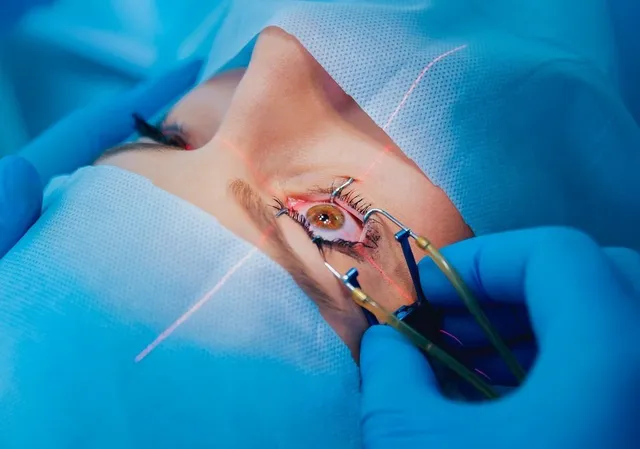Laser eye surgery has become a popular option for those seeking to improve their vision. It is a safe and effective procedure that is performed by skilled and experienced professionals. The use of lasers in eye surgery has revolutionized the field, providing patients with a new level of precision and accuracy. In this blog post, we will explore the world of laser eye surgery, including the different procedures available, the risks and benefits, and what you can expect before, during and after surgery. We will also delve into the history of the procedure, from its early beginnings to the latest advancements in technology. Additionally, we will discuss the various factors that can impact the success of the surgery, such as age, overall health, and the severity of the vision problem. Whether you are considering laser eye surgery for yourself or simply interested in learning more about this innovative procedure, this blog post will provide you with a comprehensive overview of everything you need to know. For more information visit on oclvision.com
- Nearsightedness: Correcting refractive errors.
Nearsightedness, also known as myopia, is a common refractive error in which the eye is unable to focus properly on distant objects. This condition affects approximately one-third of the population, and is caused by the eye being too long or the cornea being too steep, resulting in light rays being focused in front of the retina rather than directly on it. Correcting refractive errors, such as nearsightedness, is one of the primary goals of laser eye surgery. By reshaping the cornea, laser eye surgery can improve visual acuity and reduce the need for corrective lenses. However, laser eye surgery is not suitable for all individuals and it is important to undergo a thorough examination by a qualified ophthalmologist to determine if this type of surgery is appropriate for your specific needs.
- LASIK: A popular procedure.
Laser eye surgery has gained widespread popularity in recent years as a safe and effective way to correct vision problems. LASIK, in particular, is a popular procedure that has been performed for over two decades. LASIK, which stands for Laser-Assisted In Situ Keratomileusis, is a type of refractive surgery that uses a laser to reshape the cornea of the eye. This can correct common vision problems such as nearsightedness, farsightedness, and astigmatism. LASIK is a relatively quick and painless procedure that can be performed on an outpatient basis, with most patients experiencing improved vision immediately after the surgery. While LASIK is not suitable for everyone, it is a viable option for many people who want to reduce their dependence on glasses or contact lenses.
- PRK: A less invasive alternative.
PRK, or photorefractive keratectomy, is a type of laser eye surgery that offers a less invasive alternative to other procedures such as LASIK. PRK involves reshaping the cornea with a laser to correct vision problems such as nearsightedness, farsightedness, and astigmatism. Unlike LASIK, PRK does not require the creation of a flap in the cornea. Instead, the outer layer of the cornea is gently removed, allowing the laser to reshape the tissue underneath. While the recovery period for PRK can be longer than LASIK, it is a good option for those whose corneas are too thin for LASIK or who have other factors that make them unsuitable candidates for LASIK. Your eye doctor can help determine if PRK is the right choice for you and discuss the potential benefits and risks of the procedure.
- Preparing for laser eye surgery.
Preparing for laser eye surgery is an important step in achieving a successful outcome. Prior to the procedure, it is important to schedule a consultation with your eye surgeon to discuss your medical history, medications, and any concerns you may have. During this consultation, your surgeon will conduct a thorough eye exam to determine if you are a candidate for laser eye surgery and which procedure would be best for your individual needs. It is important to follow any pre-operative instructions provided by your surgeon, such as avoiding contact lenses and certain medications, to ensure that your eyes are in the best possible condition before the surgery. Additionally, it is important to arrange for transportation to and from the surgery center, as well as arranging for someone to stay with you for the first few hours following the procedure. By following these guidelines, you can help ensure a safe and effective laser eye surgery experience.



